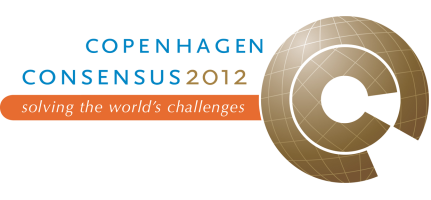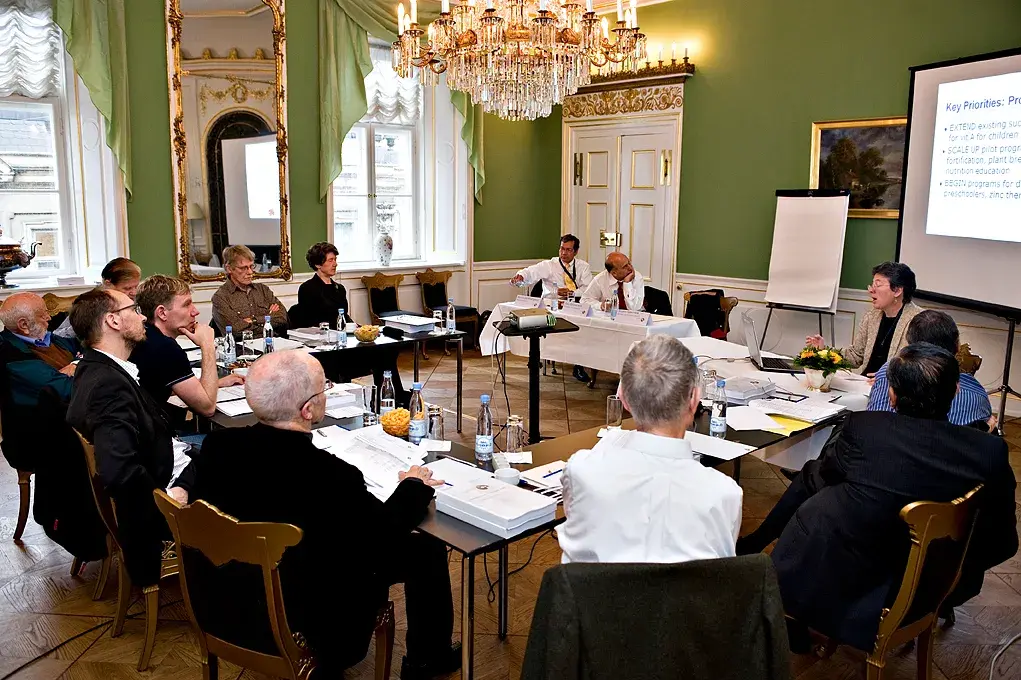Copenhagen Consensus III
In 2004 and 2008, the Copenhagen Consensus hosted two major conferences that helped to shape overseas development spending and philanthropic decisions for years to come, directing significantly more money to HIV/AIDS spending in 2004, and micronutrients in 2008. The projects provided a clear list of priorities ranked according to their costs and benefits and potential for combating ten of the world’s greatest challenges.
In May 2012, the third global Copenhagen Consensus was held, putting together the world’s smartest minds to analyze the costs and benefits of different approaches to tackling the world‘s biggest problems. The aim is to provide an answer to the question:
If you had $75 billion for worthwhile causes, where should you start?
An Expert Panel including four Nobel laureates met in Copenhagen, Denmark, in May 2012. The Expert Panel’s deliberations informed by thirty two new economic research papers written for the project by top scholars from around the world.
Across ten topic areas, the research rigorously examines different approaches to tackling one global challenge. For example, one paper weighs different ways to reduce conflict in fragile states. Another looks at the smartest ways to reduce malnutrition around the globe. And another looks at different approaches to combating climate change. Each research paper offers new insight into the best ways to approach that challenge. A set of three papers was written for each topic, to provide a range of world-class and innovative thinking.
The Expert Panel looked at all of the solutions to all of the problems, and identified the most cost effective ways of achieving good in the world. The final outcome: a list of priorities with all the solutions identified by the scholars ranked by the expert panel according to the potential of each solution for solving the world’s greatest challenges most cost effectively.
A summary of these findings was published as a book under the title How to Spend $75 Billion to Make the World a Better Place, published in 2012. A second edition was released in the spring of 2014 and available in electronic form from Amazon.



